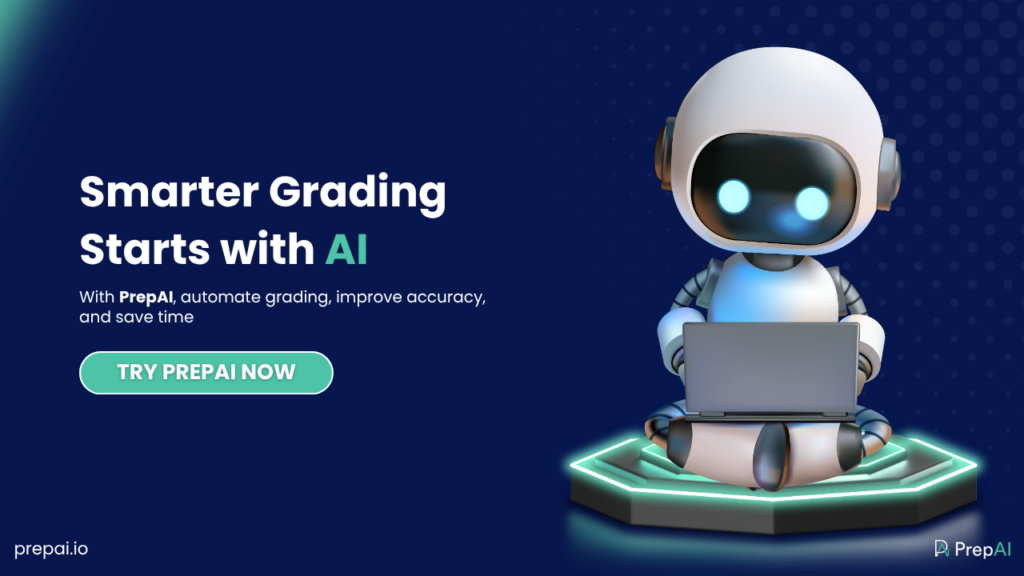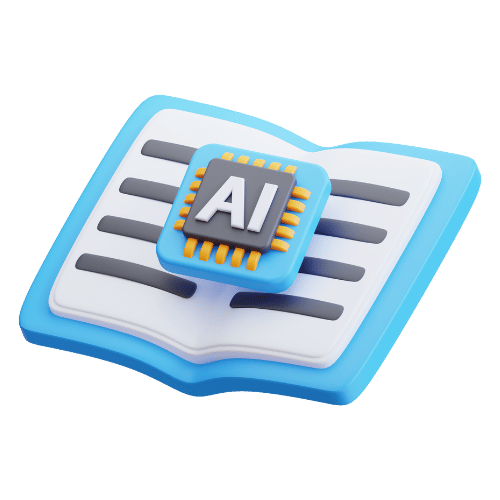Higher education assessment is complex and requires consistently fair procedures to ensure accuracy, transparency, and reliability. Here, we’ll discuss the role of AI-powered grading platforms in the future of higher education.
The education industry is experiencing many new developments in recent times. Artificial intelligence and EdTech solutions are transforming how educational institutions manage their processes, how teachers streamline their teaching and non-teaching activities, and how students personalize their learning experiences.
Statistics show that the global AI in education market is $7.71 billion in 2025 and expected to grow at a CAGR (compound annual growth rate) of 31.2% to reach $32.27 billion by 2030. Interestingly, 60% of teachers in the US use AI, while 86% of students globally use it in their studies. Factors such as academic integrity and ethical use of AI have led to some resistance from teachers to AI adoption. However, with EdTech vendors ensuring compliance, data security, and data privacy, schools and universities are now actively embracing AI solutions.
Higher education assessment is one area where AI solutions have become popular. That’s because using AI assessment platforms is not just about saving time and money. It is also about creating better procedures and frameworks to increase the benchmarks and maintain proper grading standards.
In this blog, we’ll read more about why automated AI-powered grading is the future of higher education. Let’s start by understanding the types of grading models.
Types of Automated Grading Models
Most learning assessment tools offer automated grading to save time and reduce workload for the faculty. After all, evaluating each answer sheet submitted by the student takes time and can be a stressful task. But how do the platforms grade the submissions? Typically, the AI solutions use one of the following grading systems:

Rule-based Systems
A rule-based assessment system works for structured tests (like MCQs, true/ false, etc.), where the platform is trained on the grading rules. It evaluates the answers by matching them with the criteria.
Machine Learning Systems
The machine learning systems are a bit more complex as they use natural language processing to assess different factors such as grammar, sentence formation, coherence, etc. The platforms can grade descriptive answers and essays (open-ended answers).
Hybrid Systems
As the term suggests, hybrid systems combine two or more grading stems. For example, PrepAI is an NLP-powered higher education assessment solution that uses both rule-based and machine learning systems. They have greater accuracy.
Why AI-Powered Grading is the Future of Higher Education
Advanced assessment platforms ensure faculty AI-readiness and are termed outcome platforms, as they streamline the examination process and offer numerous benefits. AI is the future of grading due to the following reasons:
Saves Time
Naturally, the biggest benefit of AI assessment platforms is automation. With solutions like PrepAI, teachers can save over ten hours a week, and that too by automating a single activity (assessment creation). Instead of poring over various books or study materials to manually create questions, they can use the content as an input for the platform to convert it into questions in just a few seconds. Similarly, the submitted answers can be graded instantly by the platform. What previously took hours now takes seconds or a few minutes.
Reduce Workload and Stress
Teachers are almost always overworked due to the countless tasks they have to complete. This includes teaching and non-teaching activities. Artificial intelligence helps streamline some of these tasks to save time and reduce workload. When a teacher can create an assessment and grade it automatically in just a few minutes, they have more time to work on other tasks and find it less stressful to complete the activities.
Lack of Bias or Prejudice
Be it skill-based assessments, technical assessments, or any other form of assessments, a big concern is about the unconscious bias and prejudice that can influence the faculty when grading the submissions. Even when the student identities are kept anonymous, factors like handwriting or perceived ideas can lead to inconsistent grading. Such risks can be avoided and minimized by using an AI-powered assessment and grading platform. PrepAI’s algorithm is trained to eliminate bias and increase accuracy.
Standardization
Traditional grading methods have had challenges since personal feelings, opinions, and judgment cannot be avoided. Thanks to the advancement in artificial intelligence, educational institutions can limit and prevent these challenges while setting higher standards to benchmark the grading process. Assessment platforms like PrepAI offer accreditation compliance to empower schools, colleges, and universities to integrate new technology into their systems and ensure high-quality performance. Furthermore, there will be fewer chances of disputes or errors when the process is automated, thus resulting in greater consistency as well.
Transparency
Structured tests may not cause a lot of challenges, but open-ended questions, descriptive answers, and creative writing are tricky. How does the faculty grade such answers when everything is so subjective? It raises questions about academic integrity, especially when perceived biases come into play. Such issues and complaints can be prevented by automating the grading process. By using AI assessment solutions, educational institutions can show that they are transparent in their approach and use the same parameters for everyone. Moreover, platforms such as PrepAI can be fine-tuned to improve accuracy over time.
Analytical Approach
There’s no denying the importance of human insight. However, when it is backed by data-driven analytics, the results will be much better and create more value. For example, a high school conducts a leadership assessment to determine which students have natural abilities to lead others. The teachers will already have an idea based on their interactions with the students. However, AI-powered grading and analysis can provide new insights and help identify hidden talents. This opens doors to many new possibilities where students can prove themselves and get additional help from faculty to enhance their qualities.
Quick Personalized Feedback
There’s another reason for AI assessment solutions to be the future of grading. When the process is automated, it not only eliminates bias but also ensures the results are instantly accessible. Whether it is a class test, a surprise quiz, or a functional assessment, it has been noticed that students learn faster and retain more knowledge when they can immediately see the results of the tests and identify the problem areas. The answers will still be fresh in their minds, which allows them to relearn and rectify the mistakes the next time. Since the platforms also provide short AI-generated summaries and explanations, students find it easier to learn.
Scalability
Higher education assessments have to be scalable to accommodate the changing and growing requirements of the institution. Using AI assessment solutions solves this problem effectively, as the faculty can create and conduct bulk assessments and grade all submissions using the platforms. At the same time, the results will be consistent across all assessments, with minimum risk of human error. This not only saves time and reduces workload but also gives a competitive edge over other growing educational institutions in the global market.

To Sum Up
Higher education assessments with audit-ready AI-powered grading can vastly benefit the education industry and streamline the assessment/ examination process. PrepAI’s accreditation compliance helps align the institution’s AI policy with global regulations to prevent legal issues.
With additional benefits such as continuous improvements and personalization, AI assessment solutions are here to stay and future-proof educational institutions, thus enhancing the learning experience and making education more accessible to everyone.
Talk to our experts to schedule a workshop to understand how PrepAI empowers your faculty.



